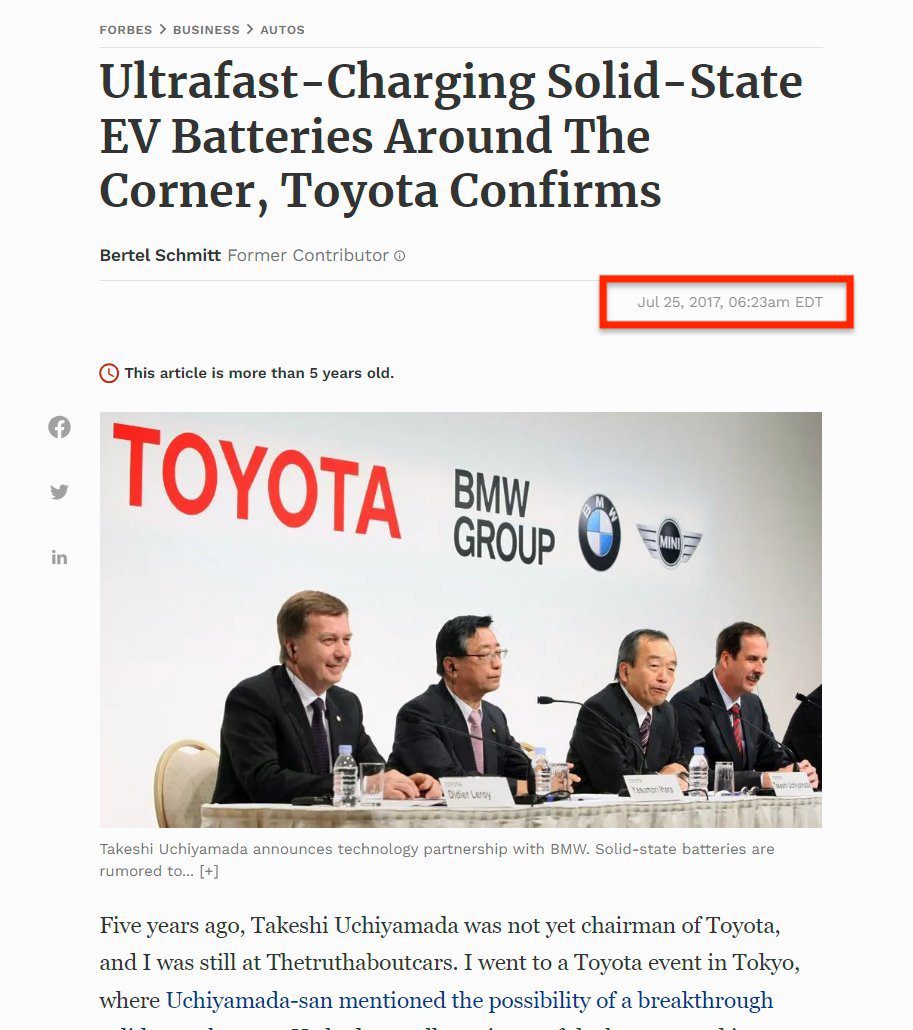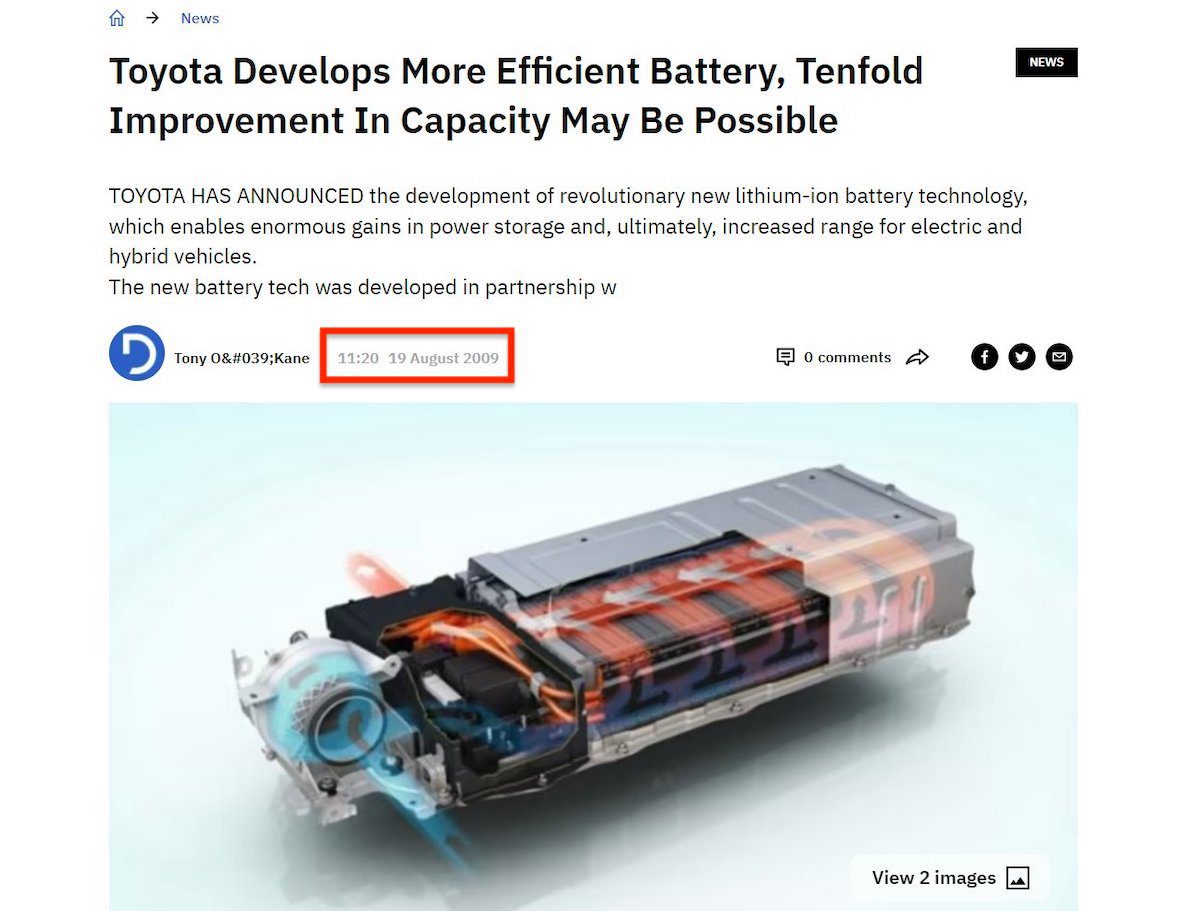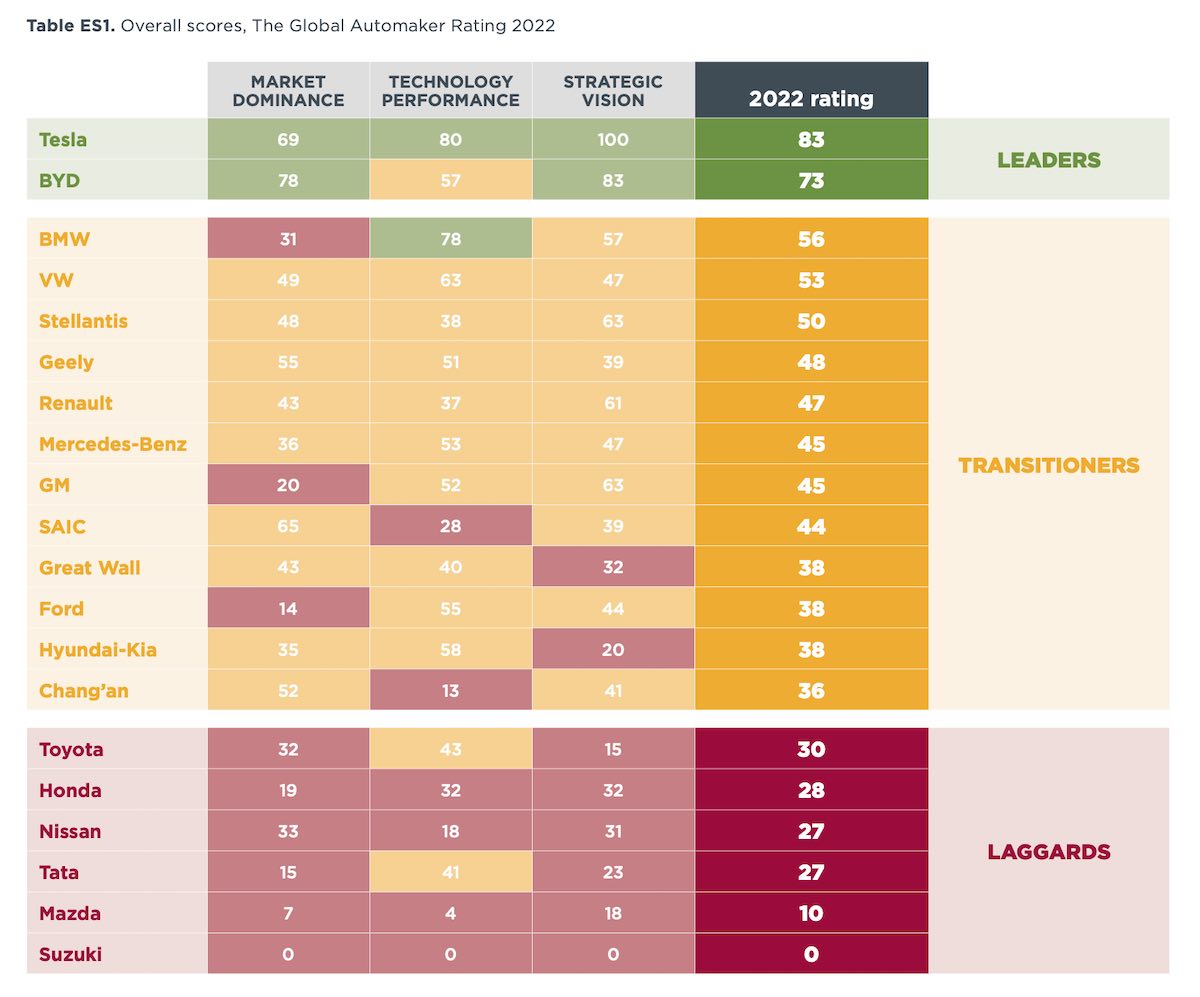
Reports this week from major media outlets say Toyota has made a breakthrough on solid state batteries that could revolutionise the future of electric vehicles. But the claims should be taken with a grain of salt: Toyota has a history of unfulfilled big promises on batteries going back over a decade.
“Toyota claims battery breakthrough in potential boost for electric cars” read one headline in The Guardian this week. The article claims Toyota believes it could make a solid-state battery with a range of 745 miles (1198km) that charges in 10 minutes.
The article states that Toyota is pursuing a plan to roll out electric vehicles with the new solid state batteries by 2025.
That would be great, were it to happen. But the reality is that Toyota produced just 8000 electric vehicles in the first half of 2023, making up just 0.19% of the company’s total production.
And Toyota has a history of talking big on battery and hydrogen breakthroughs but never seeming to follow through with actual production.
Toyota’s track record of battery spin was picked up today by climate and energy researcher Ketan Joshi, who posted screenshots of Toyota’s unfulfilled battery claims going back to 2009.
Hello everyone! Don't take a single thing @Toyota says as real until it's comprised of more than 30% of their total company sales.
Screenshots from
– July 2023
– July 2020
– July 2017
– August 2009 https://t.co/tUOnrwSGE5 pic.twitter.com/pAbKBpZYcr— ketan.bsky.social (@KetanJ0) July 4, 2023
One headline from Forbes in 2017 reads “Ultrafast-Charging Solid-State EV Batteries Around The Corner, Toyota Confirms”.

Another headline from 14 years ago reads “Toyota Develops More Efficient Battery, Tenfold Improvement In Capacity May Be Possible”
“If Nikkei’s estimate is on the money, a ten-fold increase in range means Toyota’s next-generation hybrids and EVs could easily travel between Melbourne and Sydney on a single charge.” says the 2009 Drive article, which said at the time that such batteries were not expected to arrive until sometime after 2015. We are still waiting.

14 years on from Toyota’s battery claims ,the company was ranked as a laggard on EVs by the International Council on Clean Transportation (ICCT) in its recent study which ranked the largest 20 automotive companies on market dominance, technology performance and strategic vision.

In its story on Toyota’s latest battery claims The Guardian states: “Toyota says it has made a technological breakthrough that will allow it to halve the weight, size and cost of batteries, in what could herald a major advance for electric vehicles,”
The article quotes the president of Toyota’s research and development centre for carbon neutrality Keiji Kaita.
“For both our liquid and our solid-state batteries, we are aiming to drastically change the situation where current batteries are too big, heavy and expensive,” said Kaita,
“In terms of potential, we will aim to halve all of these factors.”
However Kaita’s claims that current batteries are too expensive also doesn’t fit with reality as Tesla is already producing vehicles with up to 600 km range with some of the highest profit margins ever seen in the automotive industry.
Tesla has multiple suppliers of battery packs including CATL and BYD. BYD itself is also profitable and last month had record EV sales along with Tesla.
While Toyota’s executives appear relatively relaxed about the situation, Toyota’s shareholders seem to be getting nervous. This week details of Toyota’s recent general meeting emerged including one shareholder asking top management “Can Toyota beat Tesla?”.
The response came from executive vice president Yoichi Miyazaki was that Toyota would continue its “multi-pathway approach” of decarbonising through diverse options. Code for continuing to pursue hydrogen and hybrids and delay ramping EV production.
While Toyota continues to claim underdeveloped battery technology as one of the reasons it’s not producing EVs, a narrative its been pushing now for 14 years, perhaps the true reason is much more simple: It simply hasn’t wanted to produce EVs.

Daniel Bleakley is a clean technology researcher and advocate with a background in engineering and business. He has a strong interest in electric vehicles, renewable energy, manufacturing and public policy.


